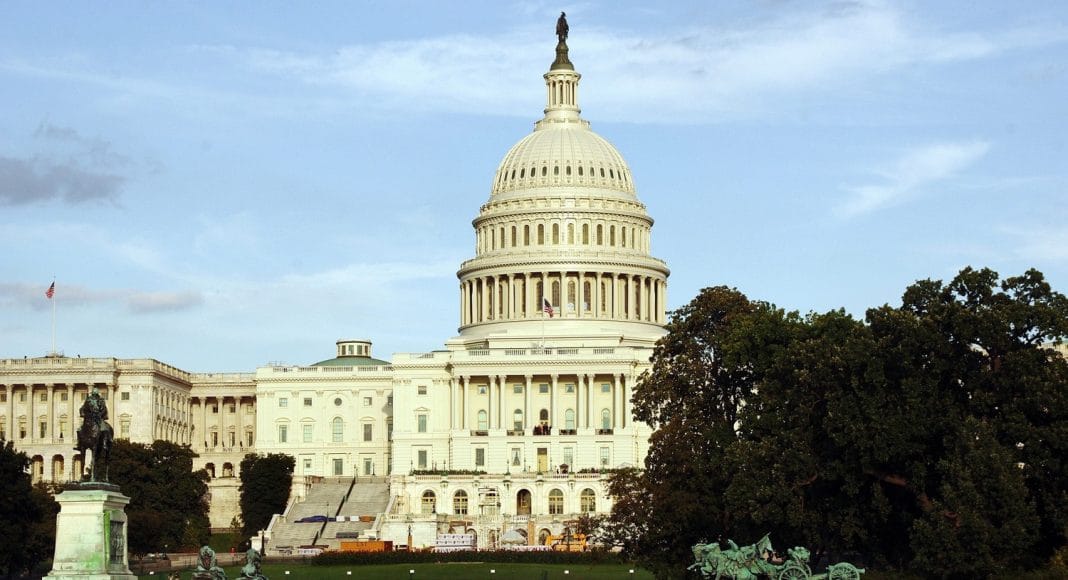Twenty-nine states have already legalized medical marijuana and eight (plus the District of Columbia) have legalized it for recreational purposes as well. All suffer from Congressional inaction on marijuana policy. So long as marijuana remains prohibited under federal law, participants in legal marijuana markets are at risk of federal prosecution, states are unable to regulate effectively, and businesses are forced to operate on a dangerous all-cash basis.
Until recently, Congress appeared to have only two choices: continue to do nothing about the conflict as marijuana laws change across the country, or cede all federal control to the states, crossing its fingers that states do a good job of regulating a newly-legal vice without any authority to step in if they don’t. But a reintroduced bill offers a more responsible path forward. The State Marihuana And Regulatory Tolerance (SMART) Enforcement Act (H.R. 3534), sponsored by Congresswoman Suzan DelBene (D-WA), would establish safe havens to protect states without giving up all federal control.
What The Bill Does
The SMART Enforcement Act grants states the ability to apply for a waiver from the marijuana prohibition in the Controlled Substances Act for a set period of time — but only if they have strict regulatory systems in place. In order to qualify, a state that has legalized medical and/or recreational marijuana will have to show it can protect federal interests, including by:
- Preventing the distribution of marijuana to minors;
- Making sure criminal enterprises, gangs, and cartels don’t get their hands on marijuana markets or revenues;
- Blocking the diversion of marijuana from a state where it is legal to other states;
- Ensuring legal marijuana activity is not used as a cover for other illegal activity or trafficking in illicit drugs;
- Preventing the use of violence or firearms in marijuana cultivation and distribution;
- Stopping drugged driving and other possible negative public health consequences of marijuana use;
- Prohibiting the growing of marijuana on public lands;
- Keeping marijuana off of federal property; and,
- Protecting consumers and patients from tainted marijuana.
Additionally, before receiving a waiver to get a safe haven from federal marijuana laws, a state would have to agree to track data on youth use, drugged driving, diversion to other states, and drug-related crime activity. That data would then be submitted in a report on the effects of legalization annually to the federal government. Each waiver would be good for three years and could be renewed indefinitely.
-
Related Story: What The White House Doesn’t Know About Marijuana Policy
Why We Need It
The SMART Enforcement Act addresses the consequence of the current legal conflict, without abandoning the ability to step in if states make bad decisions around marijuana legalization.
- The SMART Enforcement Act resolves the conflict between state legalization and federal prohibition by creating a safe haven for states with robust regulatory systems. Patients, consumers, and dispensary owners won’t have to live in fear of prosecution, now or in the future. States will be better able to regulate their markets effectively because they won’t be hamstrung by concerns that prevent state employees from being ordered to interact with marijuana — even for safety purposes like testing and labeling — for fear of being targeted by federal officials. And banks will be able to serve legal marijuana businesses, ending their need to rely on all-cash systems that are a magnet for violent crime and put communities at risk.
- Not all state marijuana legalization laws are created equal. By maintaining a role in the waiver process, this bill gives the federal government a tool to incentivize states to establish strict and effective systems that protect federal interests. The other proposed solutions to the current legal conflict would leave the federal government unable to step in to prevent drugged driving, youth access, or gang violence. That could create a wild west of marijuana, where states establish wildly differing regulatory schemes that don’t take into account federal interests or public safety, and the government’s hands would be tied.
- Because waivers need to be re-authorized every three years, this bill establishes a process for ongoing oversight, to make sure states are doing a good job of regulating marijuana responsibly, and to review the data on the longer-term effects of legalization — and course correct if necessary.
- The safe haven policy in the SMART Enforcement Act is overwhelmingly supported by the American public. Our polling found that 67% of voters supported Congress passing a law to give states with strong regulatory systems a safe haven, including 78% of Democrats, 54% of Republicans, and 74% of Independents; 71% of men and 64% of women; and nearly a quarter (21%) of voters who oppose legalizing recreational marijuana.
Conclusion
Congress must act on marijuana — the political headwinds, the realities on the ground, and public opinion are clear. But it is also crucial to act in a smart way, not simply creating a national free-for-all. That means passing the SMART Enforcement Act to establish a safe haven for states with strong regulatory systems. Doing so would be both good policy and good politics.
This story was originally published by ThirdWay.org.


